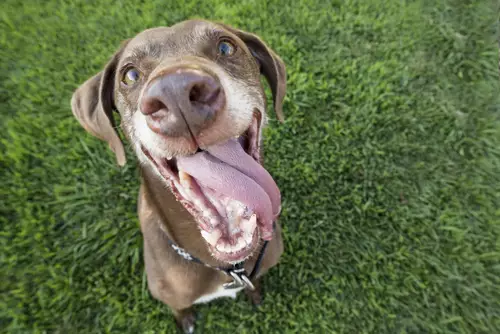For any dog owner, few behaviors are as perplexing and perplexingly unpleasant as the habit of coprophagia, or the consumption of feces. This behavior can elicit shock and embarrassment among pet parents who are often left wondering what drives their furry companions to engage in such a strange and unsavory act. It’s crucial to understand that while this habit may be alarming, it is surprisingly common among dogs, and there are underlying reasons that can explain this perplexing behavior.
Research indicates that around 16% of dog owners report their pets indulging in this unsightly vice. This statistic alone should bring some comfort to embarrassed owners, demonstrating that they are not alone in their canine’s challenging habit. Additionally, studies from reputable institutions, such as the University of California at Davis, have begun to peel back the layers of this canine conundrum, revealing that factors as varied as instinctual drives and even diet may contribute to coprophagia.
The Instinctual Origins
Diving deeper into the psyche of dogs, one can trace this odd behavior back to their wild ancestors, particularly wolves. According to veterinary research, the instinct to consume feces may have developed as a means of avoiding parasites. In the wild, wolves typically defecate away from their dens, adhering to a healthful instinct to prevent parasite infestation—a behavior that can still be observed in domestic dogs today. It has been posited that by consuming feces, dogs were more likely to eliminate the presence of potentially infectious larvae before they could develop.
Furthermore, the phenomenon is not entirely alien to certain other species. For example, in rabbits, fecal consumption is necessary for re-absorbing nutrients that might be lacking in their diet. For young puppies, consuming their mother’s feces is a natural behavior linked to the learning process in the early stages of life. Understanding these biological and evolutionary factors can lend a different perspective to dog owners, illuminating why their pets may engage in such habits even when household environments are ostensibly safe and comfortable.
Behavioral Insights and Potential Triggers
Despite biological imperatives, coprophagia can be triggered by numerous behavioral factors, particularly stress, boredom, or attention-seeking behavior. Dogs are inherently social creatures, often thriving on interaction and stimulation from their owners. If they feel neglected or are not receiving adequate mental and physical exercise, they may turn to feces as a source of inadvertent entertainment.
Veterinary experts suggest that owners who witness this behavior often have the opportunity to mitigate it through appropriate management strategies. Engaging your dog in stimulating activities, encouraging regular exercise, and fostering a strong bond through training can significantly reduce the likelihood of poop consumption. Reinforcing positive behavior through rewards and interactive play can redirect their focus from unwanted habits.
Dietary Influences and Health Concerns
While behavioral modification plays a significant role in addressing coprophagia, diet can equally influence this habit. Vets often cite potential dietary deficiencies, such as a lack of essential nutrients or specific enzymes, as contributors to this behavior. Supplementing a dog’s diet with various nutrients—including Vitamin B, enzymes, or even fiber—might aid in curbing the tendency to indulge in feces.
Additionally, a dog’s innate curiosity plays a role when they consume the feces of other animals, such as that of cats or livestock. In these instances, the scent might trigger a natural interest akin to discovering new food, while the nutritional content of the feces can be enticing when the dog perceives them as treats—much like a scavenger hunt. However, there is a considerable risk associated with this habit. Consuming feces, particularly from other animals, can expose dogs to various harmful bacteria and parasites, so it becomes essential for owners to monitor their dog’s interactions with the environment closely.
Training Techniques and Support from Veterinary Professionals
For owners seeking to tackle their dog’s coprophagia, various training methods exist. Direct intervention is often necessary: owners can design a structured approach to discourage this behavior. This includes promptly cleaning up after the dog, using leash control during walks, and incorporating commands like “leave it” to prevent dogs from indulging in fecal matter.
Consulting with a veterinarian is essential, as they can provide tailored dietary suggestions and behavioral strategies based on your dog’s specific needs and temperament. Ultimately, fostering a supportive and enriched environment for your pet can lead not only to a happier dog but also to a serene and coprophagia-free home.
Through a combination of understanding, proactive training, and veterinary guidance, owners can navigate this challenging behavior, transforming the perplexing habit of poop consumption into an opportunity for growth, learning, and a stronger bond with their canine companions.

